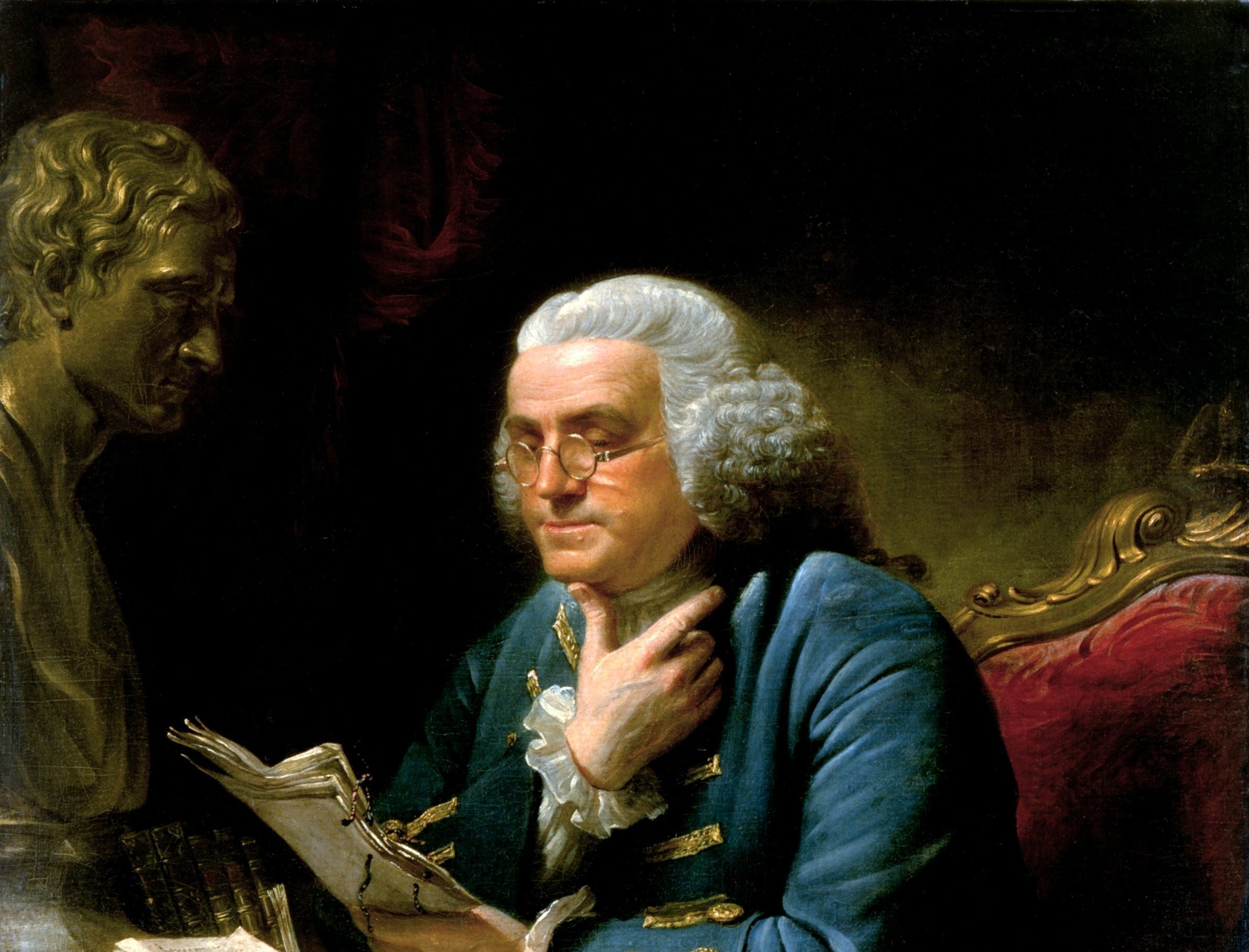SIR,
“Since the conversation your Excellency was pleased to honor me with, on the subject of uniting the colonies more intimately with Great Britain, by allowing them Representatives in Parliament, I have something further considered that matter, and am of opinion, that such a Union would be very acceptable to the Colonies, provided they had a reasonable number of representatives allowed them; and that all the old acts of Parliament restraining the trade or cramping the manufactures of the colonies be at the same time repealed, and the British Subjects on this side the water put, in those respects, on the same footing with those in Great Britain, till the new Parliament, representing the whole, shall think it for the interest of the whole to reenact some or all of them: It is not that I imagine so many Representatives will be allowed the Colonies, as to have any great weight by their numbers; but I think there might be sufficient to occasion those laws to be better and more impartially considered, and perhaps to overcome the private interest of a petty corporation, or of any particular set of artificers or traders in England, who hereto fore seem, in some instances, to have been more regarded than all the Colonies, or than was consistent with the general interest, or best national good. I thing too, that the government of the colonies by a Parliament, in which they are fairly represented, would be vastly more agree-able to the people, than the method lately attempted to be introduced by royal instruction, as well as more agreeable to the nature of an English consititution, and to English liberty; and that such laws as now seem to bear hard on the colonies, would (when judged by such a Parliament for the best interest of the whole) be more cheerfully submitted to, and more easily executed.
“I should hope too, that by such a union, the people of Great Britain and the people of the Colonies would learn to consider themselves, not as belonging to different Communities with different Interests, but to one community with one interest; which I imagine would contribute to strengthen the whole, and greatly lessen the danger of future separations.
“It is, I suppose, agreed to be the general interest of any state, that its people be numerous and rich; men enow to fight in its defence, and enow to pay sufficient taxes to defray the charge; for these circumstances tend to the security of the state, and its protection from foreign power: But it seems not of so much importance whether the fighting be done by John or Thomas, or the tax paid by William or Charles. The iron manufacture employs and enriches British Subjects, but is it of any importance to the state, whether the manufacturer lives at Birmingham, or Sheffield, or both, since they are still within its bounds, and their wealth and persons still at its command? Could the Goodwin Sands be laid dry by banks, and land equal to a large country thereby gain’d to England, and presently filled with English Inhabitants, would it be right to deprive such Inhabitants of the common privileges enjoyed by other Englishmen, the right of vending their produce in the same ports, or of making their own shoes, because a merchant, or a shoemaker, living on the old land, might fancy it more for his advantage to trade or make shoes for them? Would this be right, even if the land were gained at the expense of the state? And would it not seem less right, if the charge and labor of gaining the additional territory to Britain had been borne by the settlers themselves? And would not the hardship appear yet greater, if the people of the new country should be allowed no Representatives in the Parliament enacting such impositions? Now I look on the Colonies as so many Countries gained to Great Britain, and more advantageous to it than if they had been gained out of the seas around its coasts, and joined to its lands: for being in different climates, they afford greater variety of produce, and materials for more manufactures; and, being separated by the ocean, they increase much more its shipping and seamen; and, since they are all included in the British Empire, which has only extended itself by their means; and the strength and wealth of the parts are the strength and wealth of the whole; what imports it to the general state, whether a merchant, a smith, or a hatter, grows rich in Old or New England? And if, through increase of the people, two smiths are wanted for one employed before, why may not the new smith be allowed to live and thrive in the new country, as well as the Old one in the old? In fine, why should the countenance of a state be partially afforded to its people, unless it be most in favor of those who have most merit? And if there be any difference, those who have most contributed to enlarge Britain’s empire and commerce, encrease her strength, her wealth, and the numbers of her people, at the risque of their own lives and private fortunes in new and strange countries, methinks ought rather to expect some preference.
“With the greatest respect and esteem I have the honour to be Your Excellency’s most obedient and most humble servant.”
B. FRANKLIN.



